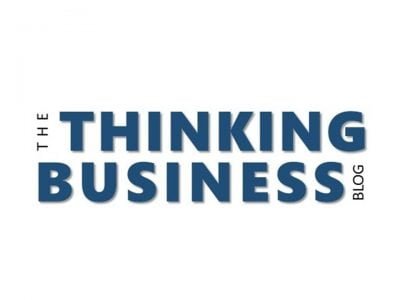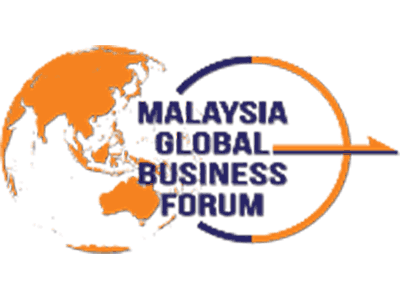Over the past few years, there has been an increased interest in startups. Long gone are the days of traditional businesses, as the current generation is more exposed and well-informed.

Nowadays, there is more of a social acceptance towards entrepreneurs and with the right set of skills and drive, startups can be successful. There are tons of startup success stories, but what about those that failed? Here are a few lessons you can learn from failed startups around the world.
Fuhu – United States

Image from The Digital Reader
Backed with an artfully straightforward concept, Fuhu designs and sells high-tech toys for children. Their best-selling product to date is the android-based learning tablet Nabi which is a combination of hardware, software services, and accessories, giving kids an immersive and engaging educational experience. Although the company could not overtake the other big-name tablet competitors, it still dominated the market and topped Inc.’s list of fastest growing company two years in a row. Fuhu’s secret to success is the ability to break out from a single product offering. When a product is tied to other additional products, it will most likely uphold long-term success.
You would think that a company with an early success was destined for greatness, but it came crashing down when it hit Whitewater in 2014. This is a common occurrence for rapid-growing businesses where at some point the organization must face complex issues.
After the success of the original line of tablets, the introduction of Fuhu’s new DreamTab flopped severely. Along with that, the company faced a dispute from their supplier Foxcoon from racking up close to USD$100 million of unpaid bills. In 2016, the company filed for bankruptcy.
What happened? Inc.com spent hours interviewing the founders and found out how the seduction of success led to overconfidence and unnecessary risk-taking decisions. While it was important to push, they pushed too hard to go big and the company was unable to benefit from it. Another thing that led to their downfall was their inability in keeping track of their spending and lending, which cause them to owe Foxconn tens of millions of dollars in addition to what it already owed for the DreamTab. This problem can be avoided if they had implemented supplier capacity management software and staff that would keep track of their supplies and funds.
SchoolGennie – India

Image from LinkedIn
Many entrepreneurs decide to venture into the startup world because they were inspired by success stories, just like how Pardeep Goyal was. Being unhappy with his current job after having just returned from the United States, Pardeep joined hands with his brother-in-law as co-founder. As education is a billion-dollar industry in India, they wanted to provide a solution related to schooling. They also believed that this industry would translate into big profits, because a child’s education is the second largest expense for parents in India.
The idea for an ERP (enterprise resource planning) tool was developed soon after. Named SchoolGennie, their product was an online software managing everything related to school, such as fee payments, inventory, communication with parents, etc. They had everything an ideal startup would need: an office, money in the bank, a hiring policy, and a co-founder with 10 years of recruitment experience.
Everything was going smoothly until unforeseen problems began to arise. To begin with, they fired their junior developer due to his poor performance. With just four people left in the team, they completed their first version of the product and were ready to market it out.
Soon after, they lost their only designer when he took off with their laptop that contained the product designs. Adding on to their dilemma, SchoolGennie’s sales were not up to targets, even though it was cheaper than their competitors. By the 11th month of its founding, the startup ran out of money and wasted Rs15 lakh (USD22,000). That was the end of SchoolGennie.
Nevertheless, Goyal learnt some valuable lessons through this costly experience. First and foremost, Goyal admitted they misused their funds on unimportant aspects. This was evident as they spent a huge sum of money setting out a physical office when they did not need to. He should have spent the money on things that could translate into more sales or leads instead. If the majority of your customers come through your website, Goyal recommends that you should invest your resources in areas such as content marketing, sales deck, and sales pages.
Quweza – South Africa
Right off the bat, this startup had a great team of ambitious, multi-faceted, and highly enthusiastic individuals. The company targeted the education industry in the Swazi market with a plan to revolutionize schools across the country with their product. They were so excited about their business that they invested R19.2 million (USD1.4 million) without a product plan drawn up.
After months of working out their million-dollar project, reality came creeping in and the company encountered a number of difficult challenges until they had to call it quits. What happened? The founder, Benjamin said they did not have a deep honest retrospection of their product until they realized it was not working out and it was still very far away from their desired outcome.
The lesson? Validate the product idea with customers. The word startup might sound glamorous, but little did you know, hundreds of hours of research is done to validate the true demand of a product and how to market it right.
Every entrepreneur should learn to embrace failures, because it teaches us things that aren’t taught elsewhere. No matter what business you plan to start, it will not be easy. But once you have experienced the taste of failure, I will guarantee that it will make a huge impression on your future endeavors.
See also: 7 Businesses That Failed in Malaysia
In Partnership with iPrice Malaysia.
Disclaimer: The views and opinions expressed in this article are those of the author and do not necessarily reflect the official statement/position of CompareHero.my. CompareHero.my is not responsible for the accuracy of any of the information supplied in this article.
Services
Stakeholder mapping, analysis, engagement and communication needs to be detailed to avoid business losses or even worse, a crisis. How can you do this effectively to prevent failure? ...
Data-driven business decisions have never been as crucial, especially in this era. MGBF leverages off, technology, experience and market presence to aid businesses in making accurate decisions. ...
MGBF provides comprehensive strategic advice and results-focused solutions to solve clients' problems in business-government relations so they can focus on their core business. ...
A critical business challenge is meeting the right decision-makers and potential buyers through the best channel and platform. How will you improve your business competency? ...
Upcoming Events
In this episode of 'A Working Lunch with Nordin', MGBF's Nordin Abdullah and regional commentator Eddin Khoo will discuss the biggest threats and opportunities for businesses as we look to manage change in the South China Sea.
This MGBF Roundtable will feature thought leaders form Japan, Australia, Singapore and Malaysia dealing with the critical issues of manipulation of public listed companies and government and their financial impacts.
A series of networking sessions with various business associations and trade organisations exploring high-value opportunities for business leaders and entrepreneurs looking to build the relationships that matter.
This integrated event will include a forum, dedicated business matching, site visits, a gala dinner and a round of golf. Aptly themed, the focus will be on regional food security issues and trends in the context of the supply chain, agriculture technology and trade regulations and policies.
MGBF In The News
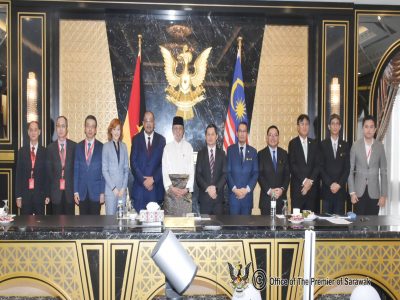
Planet QEOS and China Machinery Engineering Corporation (CMEC) are interested in investing RM10 billion to co-develop advanced Megawatt peak (MWp) agrovoltaic in Baram, to further boost Sarawak’s green energy initiative and food security. Sarawak Premier Datuk Patinggi Tan Sri Abang Johari Tun Openg was briefed on Friday by both the […]

Last week SPM results came out, 373,974 aspirants who have been waiting patiently over the last few months would now know their fate. Some 10,109 have received all A’s, the golden standard of academic success and the ticket to those looking to study the “more advanced” subjects in university. Proudly, […]

The classic knee-jerk reaction is to say, fire the coach, change the leadership of associations, and reduce the funding till they start performing better. This kind of negative reinforcement may work for kindergarten children, but we are dealing with high-performance adults – individuals much further along in their psychological and […]
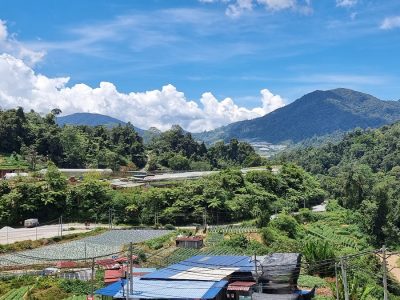
Since its earliest tea plantations in 1929, Cameron Highlands has grown to become a key player in the agricultural landscape of Malaysia, producing 40 per cent of all vegetables grown. Despite Malaysia shifting its economic focus away from agriculture, the industry remains imperative for food security and the livelihoods of […]

Although at first glance the travel industry and the agricultural sector appear to have nothing in common, they actually share more than meets the eye. The economic benefits of tourism to the agricultural sector can be multiplied several times over. “Tourism brings the end consumers closer to the source, which […]
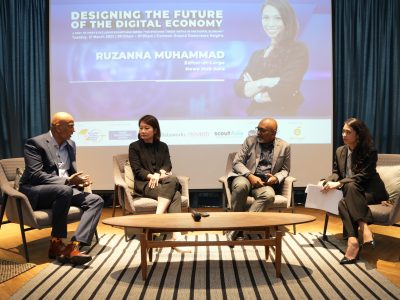
The Malaysia Global Business Forum (MGBF) recently held a high-level roundtable themed ‘Designing the Future of the Digital Economy’, attended by industry leaders and business associations. The guest of honour was Yang Berhormat Syerleena Abdul Rashid, the Member of Parliament (MP) for Bukit Bendera in Penang. The MP’s Special Session […]

The Malaysia Global Business Forum (MGBF) will be hosting a roundtable on ‘Designing the Future of the Digital Economy’ on 23 February 2023. It is the culmination of the first three MGBF Exclusive Roundtable Series titled ‘The Evolving Threat Matrix in the Digital Economy’ held throughout 2022. According to the […]

The Founding Chairman of the Malaysia Global Business Forum (MGBF), Nordin Abdullah, today spoke on Bernama TV’s leading English talk show, The Brief, hosted by Jessy Chahal, on the topic of a stable political reality and what that means for the Malaysian economy. Nordin said, “The first thing that it […]

More than 1,100 years ago, Muhammad ibn Musa al-Khwarizmi was developing the mathematical formulas that we know today as algorithms which now have become so intertwined with the business fortunes of global media giants and the very fabric of geopolitics. A series of recent high level international reports have revealed […]

KSK Land has been recognised by the Malaysia Global Business Forum (MGBF) for its role in attracting high net-worth individuals to Malaysia post-pandemic. The first challenge in investor attraction is “selling” the country. In the context of Asia, Malaysia is competing with some very established investment destinations. The second […]

Malaysia, in particular Kuala Lumpur, continues to position itself as a regional centre to do business, educate a family and enjoy a global lifestyle. One company, KSK Land, has taken the lead in positioning itself and the city of Kuala Lumpur as a property investment destination for the global citizen […]
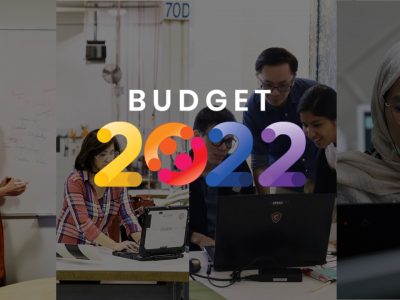
The upcoming budget represents an opportunity to build resilience in the critical sectors that will form the backbone of the country’s future-facing economic ambitions. This however needs to be achieved in the context of managing the community sectors most impacted by COVID-19 over the past two years. The Keluarga Malaysia (Malaysian Family) […]

Malaysia Global Business Forum (MGBF) has moved to support the creative economy as the overall economy moves into a recovery phase following the COVID19 pandemic. As a step in the direction of normalcy, the MGBF has agreed to host the art exhibition “I Know You’re Somewhere So Far” by one […]
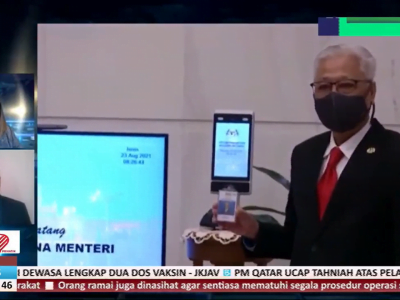
Congratulations to Datuk Seri Ismail Sabri Yaakob for taking up the mantle of the ninth prime minister of Malaysia. There is nothing normal about the situation; it could not have been scripted but it has kept the spectrum of media, mainstream and social, gripped. The first order of business for […]

In a stirring speech to the nation, President Joseph R. Biden, Jr. stamped his brand of leadership on the presidency, in his first act as the 46th president of the United State of America, it signaled several shifts. Perhaps the weather was foreboding with snow falling before the ceremony that […]

KUALA LUMPUR, 6 July 2022 – As the global economy continues to deal with unprecedented levels of disruption caused by the pandemic and the conflict between Russia and Ukraine, the convergence of energy security and food security issues has become a front-of-mind issue faced by policy makers and consumers alike. […]

KUALA LUMPUR, 23 June 2022 — Malaysia Global Business Forum (MGBF) ties up with scoutAsia to ensure that businesses are equipped with deeper regional insights. The past two years has seen a massive shift in the way businesses are conducted with digitisation, digitalisation and automation continuously being adopted to improve […]

KUALA LUMPUR, 25 May 2022 – The Malaysia Global Business Forum (MGBF)’s exclusive roundtable on ‘Security Concerns in Critical Value Chains’ was held in a hybrid setting yesterday at the Eastin Hotel Kuala Lumpur. The guest of honour was Yang Berbahagia Tan Sri Dato’ Seri Rafidah Aziz, former minister of […]
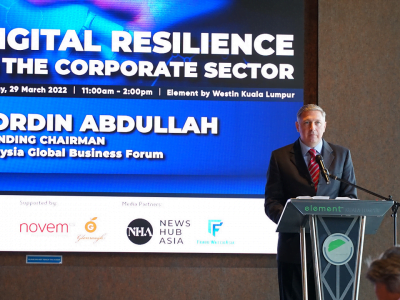
We live in the age of crisis. At the heart of any crisis is the threat of rapid change. Change too deep or too wide that the current coping mechanisms for an individual, corporation or government are unable to remain resilient. An unwelcome paradigm shift, like the proverbial spider, that […]

































